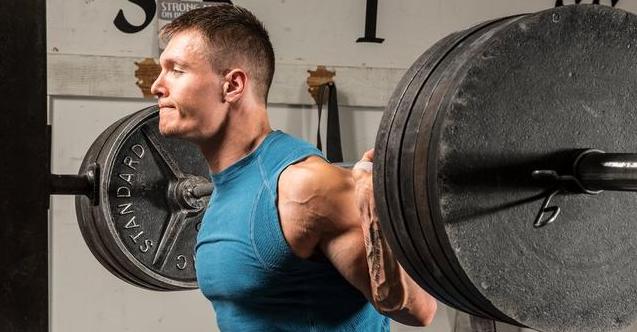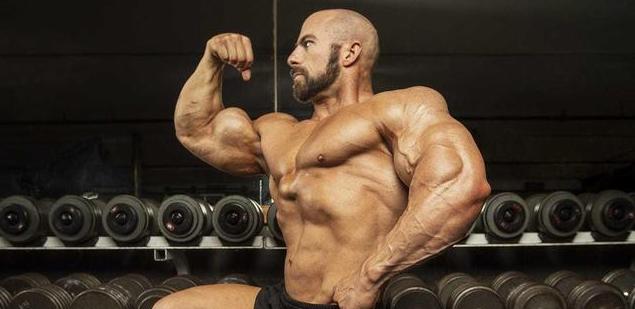The overall level of the deep squat is exceptionally high when it is practiced well. Are you for deep squats, or are you against them? Have you figured out all these benefits of deep squats?

Benefits of deep squats: increased testosterone
Testosterone is influenced by the number of muscles that can be activated by a particular movement. Overhead squats, deep squat jumps and free weight squats all increase testosterone significantly. Just as the flat bench press is considered to be the movement to train strength and get testosterone levels spiking, choose the deep squat.
Although most guys would rather bench press than squat, the bench press doesn't stimulate testosterone as much as the squat, which is indeed the "king of training movements"!
The researchers compared 5 sets of 10 reps of bench press and 5 sets of 10 reps of squat jump with 2 minutes rest between sets in 12 resistance-trained men. The results showed that the deep squat jump group (+15%) increased testosterone levels more than the bench press group (+7%).

This suggests that movements that mobilise a large amount of muscle tissue will maximise testosterone levels. So, choose leg training movements that prioritise squats over leg curls.
This study also reinforces the principle of movement order. In general, isolation movements (leg curls, high pulldowns and chest clenches) should come after large muscle group movements (squats, hard pulldowns and bench presses).
One study measured changes in biceps strength after 9 weeks of resistance training: one group did only biceps curl training and the other group did deep squats before biceps curls. The results showed that bicep curl-only movements did not significantly increase testosterone levels. Testosterone levels were significantly higher after doing deep squats first, and muscle strength increases could be greater when doing both upper and lower body movements.
The data proves that if you want to build strength, do large muscle group, multi-joint compound movements early in the workout and smaller muscle groups later in the workout.
Dynamic strength programmes also result in a significant androgenic response and are often used to build explosive strength and motor function. For example, there was an increase in both total testosterone (+18%) and free testosterone (+30%) when performing half deep squats with a 50% deadlift at 1RM. If you want to build muscle and strength, even skip the apparatus leg curls and walk to the squat rack to do deep squats.

Younger and older men who did 3 sets of 10 reps each of upper and lower body isolation (leg flexion and extension) resistance movements on the machine showed no increase in testosterone levels before or after exercise. In contrast, testosterone responses increased significantly in both older and younger men after intense, large muscle group squat training.
Now understand that getting bigger and stronger is all about activating as many muscle fibres as possible during training - and there is nothing like a deep squat to get the muscle fibres to do the work.

Don't go for the Smith machine
For bodybuilders and strength training peeps, they usually prefer free weight squats to using machines because free weights are more unstable and can recruit more trunk muscle tissue.
In hardcore gyms you will find plenty of deep squat racks and very little Smith equipment. The machines are more beginner friendly and less demanding than free weights. Just when you think you'll get a good leg workout on the Smith machines, scientists disagree.
Researchers in Canada fitted sensors to the legs of subjects and had them do either free weight squats or Smith apparatus squats. The researchers found that the free weight squat was 43% more muscularly active compared to the Smith apparatus squat.
The muscles of knee extension and hamstrings were more activated during the free weight squat, while the activation of the trunk stabilisers was similar in both movements.

This suggests that the free weight squat may be superior to the Smith apparatus squat in training the major muscle groups of the legs, and will build strength and muscle mass in the leg muscle groups after prolonged training.
When squatting, don't lean too far back or too far forward! Just be careful and notice that the guys who can squat a lot of weight have big butts! There are different deep squat positions to choose from in order to maintain a streamlined body shape.
You'll have heard that you have to 'sit back' when squatting with heavy weights, add box squats to your workout, sit back on the box/bench and then stand up explosively. Sitting will use more of the gluteus maximus, making these powerful hip extensors an immediate part of the workout and increasing activation especially when squatting deeper.
If the weight is not shifted back, the deep squat will emphasise the quadriceps throughout. When squatting deep in a seated box, the quads are still a major part of the training, but now the gluteus maximus will share the load - distributing the power more evenly throughout the lower body.

Many powerlifters like to do the low bar squat, which is where the barbell is placed behind the shoulder blades. This technique is mainly used to develop strength in the hip extensors and trunk extensors.
Most guys still do the high bar squat - placing the barbell on the obliques - mainly to build strength in the quadriceps.
You may also notice that quite a few of your buddies tend to lean forward when squatting deep - not a good habit either. One study showed that among men with non-professional weightlifting training, doing a restrictive squat - where the knees can't go over the toes - produces more hip torque and less knee torque than doing an unrestricted squat.
Too much forward lean in the squat (if the knees move forward to the toes) will generate too much force in the hips and lower back. To optimise stress on all the joints involved, it may be advantageous to have the knees over to the toes when in a parallel deep squat position.

To practice deep squats is to be constantly on the way to getting stronger. You can't squat blindly, have these and then train repeatedly and practice to come up with the best squat for you!





